Bok choy, also known as Chinese cabbage, is a cruciferous vegetable that has been a staple in Asian cuisine for centuries. Its popularity is spreading globally due to its unique flavor, versatility in cooking, and most importantly, its numerous health benefits. This article explores the scientific evidence behind the health benefits of consuming Bok choy.
 Rich in Antioxidants
Rich in Antioxidants
Bok choy is loaded with antioxidants such as vitamins C and E, beta-carotene, and other phytonutrients. These antioxidants help combat oxidative stress in the body, which is linked to chronic diseases such as cancer, heart disease, and neurodegenerative disorders. According to a study published in the Journal of the American College of Nutrition, the high antioxidant content in cruciferous vegetables like Bok choy can help reduce inflammation and oxidative damage in cells .
In addition to its rich antioxidant content, Bok choy possesses unique properties that set it apart from other leafy greens and vegetables. One standout feature is its abundance of glucosinolates, sulfur-containing compounds that have been extensively studied for their potential health benefits. When broken down during digestion, glucosinolates produce bioactive compounds such as sulforaphane, which have potent antioxidant and anti-inflammatory effects. Research published in the journal Food Chemistry highlights the significant levels of glucosinolates found specifically in Bok choy, underscoring its potential as a powerhouse of protective compounds against oxidative stress.
Furthermore, Bok choy contains a diverse array of polyphenols, flavonoids, and phenolic compounds that contribute to its antioxidant activity. These plant-based compounds work synergistically to scavenge free radicals, neutralize reactive oxygen species, and protect cells from damage. Studies have shown that certain polyphenols found in Bok choy, such as quercetin and kaempferol, exhibit strong antioxidant properties and may play a role in reducing the risk of chronic diseases.
Another noteworthy aspect of Bok choy is its vitamin and mineral profile, which complements its antioxidant capacity. Alongside vitamins C and E, Bok choy is a good source of selenium, zinc, and manganese, essential trace minerals that support antioxidant enzyme activity and enhance cellular defense mechanisms against oxidative stress. The combination of vitamins, minerals, and phytonutrients found in Bok choy creates a robust defense system against oxidative damage, promoting overall health and well-being.
 Supports Bone Health
Supports Bone Health
The calcium, phosphorus, iron, magnesium, and vitamin K content in Bok choy contribute significantly to bone health. Vitamin K is particularly important for bone health as it helps in the regulation of bone mineralization. A study in the Journal of Nutrition highlighted that vitamin K plays a critical role in maintaining bone density and reducing the risk of fractures .
Unlike spinach or kale, Bok choy contains lower levels of oxalates, compounds that can interfere with calcium absorption and contribute to the formation of kidney stones. This makes Bok choy an excellent source of bioavailable calcium, essential for building and maintaining strong bones.
Furthermore, Bok choy is rich in trace minerals such as manganese, which plays a crucial role in bone metabolism and the formation of connective tissue. Manganese works synergistically with other bone-supporting nutrients in Bok choy to promote optimal bone health and reduce the risk of osteoporosis and age-related bone loss.
 Boosts Immune System
Boosts Immune System
The high vitamin C content in Bok choy strengthens the immune system by stimulating the production of white blood cells. Vitamin C is also a potent antioxidant that protects immune cells from damage by free radicals. Research published in the Nutrients journal confirms the role of vitamin C in enhancing the immune response and its potential in shortening the duration of common colds .
Additionally, Bok choy is rich in beta-carotene, another powerful antioxidant that works synergistically with vitamin C to bolster immune function. Beta-carotene is converted into vitamin A in the body, which plays a crucial role in maintaining the integrity of the skin and mucous membranes, the body’s first line of defense against pathogens.
Furthermore, Bok choy’s rich array of minerals, including calcium, potassium, and magnesium, contribute to overall immune health by supporting proper cellular function and signaling. These minerals play vital roles in enzyme reactions and cellular communication pathways involved in immune response and inflammation regulation. By providing essential nutrients in an easily absorbable form, Bok choy ensures that the body has the building blocks it needs to mount a robust immune defense against invading pathogens.
 Promotes Heart Health
Promotes Heart Health
Bok choy contains folate and vitamin B6, which help in reducing homocysteine levels in the blood. Elevated homocysteine is a risk factor for cardiovascular diseases. Additionally, the potassium content in Bok choy helps maintain normal blood pressure levels by counteracting the effects of sodium. A comprehensive review in the American Journal of Clinical Nutrition emphasizes the importance of folate and B vitamins in heart health .
Additionally, Bok choy contains phytonutrients such as glucosinolates, which have been linked to cardiovascular benefits. These compounds may help improve lipid profiles, reduce arterial stiffness, and enhance endothelial function, contributing to overall heart health.
Furthermore, Bok choy’s high fiber content is another key factor in promoting heart health. Dietary fiber helps lower cholesterol levels by binding to cholesterol in the digestive tract and aiding in its excretion from the body. By reducing LDL cholesterol levels, fiber helps prevent the buildup of plaque in the arteries, reducing the risk of atherosclerosis and coronary artery disease. Bok choy’s combination of vitamins, antioxidants, and fiber makes it a valuable addition to a heart-healthy diet.
 Aids in Digestion
Aids in Digestion
The fiber content in Bok choy aids in digestion by promoting regular bowel movements and preventing constipation. Dietary fiber also supports the growth of healthy gut bacteria, which is essential for a robust digestive system. According to research in the World Journal of Gastroenterology, fiber intake is linked to a lower risk of developing digestive disorders such as irritable bowel syndrome (IBS) and diverticulitis .
Moreover, Bok choy is rich in glucosinolates, sulfur-containing compounds that contribute to its distinctive taste and aroma. These compounds have been linked to improved digestion and nutrient absorption by enhancing the activity of digestive enzymes in the gut. Additionally, glucosinolates may help protect against digestive disorders such as gastritis and gastric ulcers by promoting the integrity of the stomach lining.
Another notable feature of Bok choy is its high water content, which aids in hydration and softening of stool, facilitating smooth passage through the digestive tract. This makes Bok choy an excellent choice for promoting regularity and preventing discomfort associated with constipation. Additionally, the presence of vitamins and minerals such as vitamin C, potassium, and magnesium further supports digestive health by contributing to overall gut function and electrolyte balance.
 May Reduce Cancer Risk
May Reduce Cancer Risk
Unlike some other members of the cruciferous family, Bok choy contains higher levels of certain glucosinolates, such as gluconasturtiin and glucobrassicin, which are precursors to bioactive compounds like sulforaphane and 3,3′-diindolylmethane (DIM). These compounds have been extensively studied for their anti-cancer effects, including their ability to inhibit tumor growth, induce apoptosis (programmed cell death) in cancer cells, and prevent the formation of new blood vessels to tumors, a process known as angiogenesis.
Moreover, Bok choy’s unique ratio of glucosinolates and their breakdown products may confer additional benefits compared to other cruciferous vegetables. For example, sulforaphane, derived from glucoraphanin found in broccoli, has been widely studied for its anti-cancer properties. However, Bok choy contains relatively lower levels of glucoraphanin but higher levels of gluconasturtiin, which yields phenethyl isothiocyanate (PEITC) upon breakdown. PEITC has shown promising anti-cancer effects in preclinical studies, particularly in inhibiting the growth of breast and prostate cancer cells.
Furthermore, Bok choy contains significant amounts of other bioactive compounds, such as vitamin C, vitamin A (in the form of beta-carotene), and flavonoids, which work synergistically with glucosinolates to combat cancer. Vitamin C, a potent antioxidant, helps neutralize free radicals and oxidative stress, which can contribute to cancer development. Beta-carotene, a precursor to vitamin A, has been linked to a reduced risk of certain cancers, including lung cancer. Flavonoids, abundant in Bok choy, exhibit anti-inflammatory and anti-cancer properties by inhibiting the growth of cancer cells and reducing the risk of metastasis.
 Enhances Skin Health
Enhances Skin Health
Bok choy is an excellent source of vitamins A and C, both of which play a critical role in maintaining healthy skin. Vitamin C is essential for the synthesis of collagen, a protein that keeps skin firm and elastic. It also acts as an antioxidant, protecting the skin from damage caused by free radicals and UV radiation. Vitamin A, on the other hand, helps in the maintenance and repair of skin tissue. A study in the Journal of Clinical and Aesthetic Dermatology indicates that a diet rich in vitamins A and C can improve skin texture and reduce signs of aging.
Moreover, Bok choy is a rich source of beta-carotene, a precursor to vitamin A, which provides additional support for skin health. Beta-carotene is converted into retinol, a form of vitamin A that is essential for maintaining the integrity of the skin’s outer layer, known as the epidermis. By promoting cell turnover and regeneration, retinol helps to smooth the skin’s texture, minimize the appearance of fine lines and wrinkles, and improve overall skin tone and clarity.
Furthermore, Bok choy’s high water content and hydrating properties make it an excellent choice for promoting skin hydration and elasticity. Proper hydration is essential for maintaining the skin’s moisture barrier and preventing dryness and dehydration, which can lead to dullness and premature aging. Incorporating Bok choy into your diet can help keep your skin plump, supple, and radiant from the inside out.
Supports Eye Health
The high levels of vitamin A and beta-carotene in Bok choy are beneficial for eye health. Vitamin A is crucial for maintaining good vision, especially in low light conditions. Beta-carotene, a precursor to vitamin A, has been shown to reduce the risk of age-related macular degeneration (AMD), a leading cause of vision loss in older adults. Research published in the Archives of Ophthalmology demonstrates that individuals with higher intakes of beta-carotene have a significantly lower risk of developing AMD.
Apart from its rich content of vitamin A and beta-carotene, Bok choy contains lutein and zeaxanthin, two powerful antioxidants known for their protective effects on the eyes. These compounds are specifically concentrated in the retina and macula of the eye, where they help filter harmful blue light and reduce the risk of oxidative damage. Research has shown that a diet rich in lutein and zeaxanthin is associated with a lower risk of age-related eye diseases, including cataracts and macular degeneration.
Furthermore, Bok choy contains bioactive compounds such as sulforaphane and indole-3-carbinol, which have been linked to improved eye health. Sulforaphane, in particular, has been shown to protect retinal cells from damage caused by oxidative stress and inflammation. Studies suggest that sulforaphane may help prevent the progression of certain eye diseases by enhancing the body’s natural defense mechanisms and promoting cellular repair.
Moreover, the high water content of Bok choy contributes to maintaining optimal hydration levels in the eyes, ensuring proper lubrication and moisture balance. Adequate hydration is essential for maintaining clear vision and preventing symptoms of dry eye syndrome, such as irritation, redness, and discomfort.
Aids in Weight Management
Bok choy is low in calories and high in fiber, making it an ideal food for weight management. The fiber content helps you feel fuller for longer, reducing the likelihood of overeating. Additionally, the low-calorie nature of Bok choy means you can consume it in large quantities without significantly increasing your calorie intake. A review in the Journal of Nutrition and Metabolism highlights the role of high-fiber, low-calorie foods in promoting satiety and supporting weight loss efforts.
One distinctive feature is its high water content, which adds bulk to your meals without adding extra calories. This not only helps you stay hydrated but also increases the volume of food you consume, promoting a feeling of fullness without the associated calorie load.
Moreover, Bok choy is rich in vitamins and minerals, particularly vitamin C and potassium. Vitamin C plays a crucial role in the synthesis of carnitine, a compound that helps your body burn fat for energy. Potassium, on the other hand, helps regulate fluid balance and electrolyte levels, supporting efficient metabolism and energy utilization.
Another notable aspect of Bok choy is its low glycemic index (GI), which means it has a minimal impact on blood sugar levels. By choosing low-GI foods like Bok choy, you can help stabilize your blood sugar levels, reducing cravings and the likelihood of overeating. This makes Bok choy an excellent choice for individuals looking to manage their weight or control their appetite.
Reduces Inflammation
The anti-inflammatory properties of Bok choy can be attributed to its high concentration of antioxidants and omega-3 fatty acids. Chronic inflammation is a contributing factor to many diseases, including arthritis, heart disease, and diabetes. The flavonoids and phenolic compounds in Bok choy help reduce inflammation at the cellular level. A study in the Journal of Medicinal Food confirms the anti-inflammatory effects of cruciferous vegetables, including Bok choy, and their potential in managing inflammatory conditions.
Another standout feature of Bok choy is its optimal ratio of omega-3 to omega-6 fatty acids. Unlike many other vegetables, which tend to have a higher proportion of omega-6 fatty acids, Bok choy boasts a more balanced ratio, favoring anti-inflammatory omega-3s. These omega-3 fatty acids, particularly alpha-linolenic acid (ALA), eicosapentaenoic acid (EPA), and docosahexaenoic acid (DHA), have been linked to reduced inflammation and improved inflammatory markers in numerous studies.
Furthermore, Bok choy contains unique phytonutrients, such as kaempferol and quercetin, which exhibit potent anti-inflammatory properties. These flavonoids inhibit the production of pro-inflammatory cytokines and enzymes, thereby dampening the inflammatory response. Additionally, Bok choy is a rich source of chlorophyll, a pigment with anti-inflammatory and detoxifying effects that contribute to its overall health-promoting properties.
Improves Metabolic Health
Bok choy contains several nutrients that support metabolic health, including folate, potassium, magnesium, and vitamins B6 and C. These nutrients play a role in various metabolic processes, such as energy production, glucose metabolism, and the regulation of blood pressure. Folate and vitamin B6 are particularly important for the metabolism of homocysteine, an amino acid linked to cardiovascular disease when present in high levels. Research in the Journal of Clinical Endocrinology and Metabolism suggests that a diet rich in these nutrients can improve metabolic markers and reduce the risk of metabolic syndrome.
Supports Liver Health
Bok choy contains sulfur compounds such as sulforaphane and indole-3-carbinol, which play a crucial role in detoxifying the liver. These compounds enhance the liver’s ability to remove toxins from the body and may help prevent liver damage. A study published in the World Journal of Gastroenterology found that sulforaphane has protective effects against liver injury and can improve liver function.
Sulforaphane, in particular, has garnered attention for its ability to activate detoxification enzymes in the liver, facilitating the breakdown and elimination of harmful substances from the body. This process, known as phase II detoxification, is essential for maintaining optimal liver function and preventing the accumulation of toxins that can lead to liver damage.
In addition to its sulfur compounds, Bok choy boasts a unique combination of vitamins, minerals, and phytonutrients that further support liver function and regeneration. Its high content of vitamin K, for example, aids in blood clotting and liver tissue repair, while antioxidants like vitamin C and beta-carotene neutralize free radicals and reduce oxidative damage to liver cells.
Improves Cognitive Function
The antioxidants and phytonutrients found in Bok choy, particularly vitamin C, vitamin K, and folate, are beneficial for brain health. Vitamin K is known to support brain function by contributing to the synthesis of sphingolipids, a class of compounds found in brain cell membranes. Folate is essential for cognitive function and neural health. According to a study in the Journal of Alzheimer’s Disease, higher intake of vitamin K and folate is associated with improved cognitive performance and a lower risk of neurodegenerative diseases such as Alzheimer’s disease.
Moreover, Bok choy is rich in choline, an essential nutrient that plays a vital role in brain development and neurotransmitter synthesis. Choline is a precursor to acetylcholine, a neurotransmitter involved in memory, learning, and muscle control. Adequate choline intake has been associated with improved cognitive performance and a reduced risk of age-related cognitive decline.
Furthermore, Bok choy contains unique phytonutrients such as glucosinolates, which have been studied for their potential neuroprotective effects. Glucosinolates are known to activate detoxification enzymes in the body, helping to eliminate harmful toxins and reduce oxidative stress in the brain. These compounds may also modulate signaling pathways involved in inflammation and cell survival, providing further support for cognitive health.
Promotes Healthy Pregnancy
Bok choy is an excellent source of folate, a vital nutrient for pregnant women. Folate plays a key role in the production of DNA and RNA and is essential for proper fetal development. Adequate folate intake during pregnancy reduces the risk of neural tube defects in newborns. The American Journal of Clinical Nutrition emphasizes the importance of folate in prenatal nutrition and its role in preventing congenital disabilities.
Enhances Respiratory Health
Bok choy’s anti-inflammatory properties and high levels of vitamin C can support respiratory health. Vitamin C helps reduce inflammation in the respiratory tract and improve lung function. A study published in the European Respiratory Journal found that higher dietary intake of vitamin C was associated with better lung function and a reduced risk of chronic obstructive pulmonary disease (COPD).
Furthermore, Bok choy contains bioactive compounds known as glucosinolates, which have demonstrated anti-inflammatory and immune-modulating effects. These compounds play a role in supporting overall respiratory function by promoting the body’s defense mechanisms against respiratory infections and inflammation. Studies have indicated that glucosinolates may help reduce the severity and duration of respiratory illnesses by enhancing immune responses and inhibiting the growth of pathogens.
Regulates Blood Sugar Levels
Bok choy’s low glycemic index and high fiber content make it a suitable vegetable for people with diabetes. The fiber in Bok choy helps slow down the absorption of sugar in the bloodstream, preventing spikes in blood sugar levels. A study in the Journal of Diabetes Investigation suggests that a diet rich in fiber from vegetables like Bok choy can improve glycemic control in people with type 2 diabetes.
Nutritional Value of Bok Choy per 100 Grams
Bok choy, also known as Chinese cabbage, is a highly nutritious vegetable that provides a wide range of essential vitamins, minerals, and other nutrients. Below is the detailed nutritional value per 100 grams of raw Bok choy:
- Calories: 13 kcal
- Water: 95.3 g
- Protein: 1.5 g
- Total Fat: 0.2 g
- Saturated Fat: 0.03 g
- Monounsaturated Fat: 0.02 g
- Polyunsaturated Fat: 0.1 g
- Cholesterol: 0 mg
- Carbohydrates: 2.2 g
- Dietary Fiber: 1.0 g
- Sugars: 1.2 g
- Vitamins:
- Vitamin A: 4468 IU (89% of the Daily Value, DV)
- Vitamin C: 45 mg (75% of the DV)
- Vitamin K: 45.5 µg (45% of the DV)
- Folate: 66 µg (16% of the DV)
- Vitamin B6: 0.2 mg (10% of the DV)
- Vitamin E: 0.09 mg (0.5% of the DV)
- Minerals:
- Calcium: 105 mg (10% of the DV)
- Iron: 0.8 mg (5% of the DV)
- Magnesium: 19 mg (5% of the DV)
- Phosphorus: 37 mg (4% of the DV)
- Potassium: 252 mg (7% of the DV)
- Sodium: 65 mg (3% of the DV)
- Zinc: 0.2 mg (2% of the DV)
- Other Nutrients:
- Beta-carotene: 2681 µg
- Lutein and Zeaxanthin: 630 µg
Key Nutritional Highlights
- Low in Calories: At only 13 kcal per 100 grams, Bok choy is an excellent choice for those looking to manage their weight.
- High in Water Content: With over 95% water, Bok choy helps keep you hydrated.
- Rich in Vitamins: Particularly high in vitamins A, C, and K, which are essential for immune function, skin health, and bone health.
- Mineral-Rich: Contains significant amounts of calcium, potassium, and magnesium, which are vital for bone health and cardiovascular function.
- Fiber Content: Provides dietary fiber which aids in digestion and promotes a healthy gut.
- Antioxidants: Contains beta-carotene and other phytonutrients that have antioxidant properties.
 Recipe
Recipe
Jamie Oliver’s Chicken Chow Mein is a delightful, flavorful dish that brings the taste of authentic Chinese cuisine right into your kitchen. This recipe stands out not only for its succulent chicken and perfectly cooked noodles but also for the inclusion of Bok choy, a nutritious leafy green vegetable. Bok choy adds a fresh, crisp texture and a wealth of vitamins and minerals, making this chow mein not only delicious but also a healthy choice. With its combination of tender chicken, vibrant vegetables, and savory sauces, Jamie Oliver’s Chicken Chow Mein is a quick and easy meal that will satisfy your taste buds and nourish your body.
Conclusion
Incorporating Bok choy into your diet can offer numerous health benefits, from boosting your immune system to promoting bone health and reducing the risk of chronic diseases. Its rich nutrient profile, combined with its antioxidant properties, makes it a valuable addition to a balanced and healthy diet. As with any dietary change, it is always best to consult with a healthcare provider to ensure it fits into your overall health plan.
Contraindications to Consuming Bok Choy
While Bok choy is generally considered safe and beneficial for most people, there are certain contraindications to be aware of:
Thyroid Disorders: Bok choy belongs to the cruciferous vegetable family, which contains compounds called goitrogens. These compounds can interfere with thyroid function and iodine absorption, potentially exacerbating thyroid disorders such as hypothyroidism. Individuals with thyroid issues may need to moderate their intake of cruciferous vegetables, including Bok choy.
Kidney Stones: Bok choy is moderately high in oxalates, naturally occurring compounds that can contribute to the formation of kidney stones in susceptible individuals. Those prone to kidney stones may need to limit their intake of oxalate-rich foods, including Bok choy, to reduce the risk of stone formation.
Blood Thinning Medications: Bok choy contains vitamin K, which plays a crucial role in blood clotting. Individuals taking blood-thinning medications such as warfarin need to monitor their vitamin K intake consistently to maintain stable anticoagulant levels. Consuming large amounts of vitamin K-rich foods, including Bok choy, may interfere with the effectiveness of these medications.
Digestive Issues: Some people may experience gastrointestinal discomfort, bloating, or gas after consuming cruciferous vegetables like Bok choy. This reaction is often due to the vegetable’s high fiber content and may be more pronounced in individuals with sensitive digestive systems or conditions such as irritable bowel syndrome (IBS).
Allergies: Although rare, some individuals may be allergic to Bok choy or other cruciferous vegetables. Allergic reactions can range from mild symptoms such as itching or hives to more severe reactions like difficulty breathing or anaphylaxis. People with known allergies to cruciferous vegetables should avoid consuming Bok choy to prevent allergic reactions.
As with any dietary change or addition, it’s essential to consult with a healthcare professional, especially if you have underlying health conditions or concerns about potential interactions with medications.
Fascinating Facts About Bok Choy
- Ancient Origins
Bok choy has a rich history that dates back thousands of years. Originating in China, it has been cultivated and consumed since ancient times. Chinese emperors valued Bok choy for its flavor and medicinal properties, considering it a symbol of prosperity and good fortune.
- Two Varieties, One Name
Despite its singular name, Bok choy actually encompasses two distinct varieties: the smaller, baby Bok choy (sometimes called Shanghai Bok choy) and the larger, standard Bok choy. Both varieties share similar nutritional profiles and culinary uses but differ in size and appearance.
- Quick and Versatile Cooking
One of the most remarkable qualities of Bok choy is its adaptability in the kitchen. It can be cooked in various ways, including stir-frying, steaming, boiling, or even eaten raw in salads. Its tender leaves and crisp stalks make it a favorite among chefs for quick and delicious meals.
- Feng Shui Symbolism
In Chinese culture, Bok choy is often associated with good luck and prosperity. Its name, which translates to “white vegetable,” is believed to symbolize purity and wealth. As a result, Bok choy is frequently included in traditional dishes served during festivals and celebrations.
- Medicinal Uses
In traditional Chinese medicine, Bok choy is prized for its medicinal properties. It is believed to have cooling and detoxifying effects on the body, making it beneficial for reducing inflammation, promoting digestion, and cleansing the liver. Some herbal remedies also incorporate Bok choy as a key ingredient.
- Stealthy Self-Defense Mechanism
While Bok choy may appear defenseless, it harbors a secret weapon against pests lurking in its midst. When under attack by insects, Bok choy can release a chemical compound known as glucosinolate, which acts as a natural insecticide. This ingenious self-defense mechanism not only protects the plant from harm but also adds to its allure as a resilient survivor in the garden.
- Bok Choy’s Colorful Cousins
While the classic Bok choy variety boasts vibrant green leaves and pale stalks, its lesser-known relatives come in a dazzling array of colors and shapes. From purple-tinged stems to variegated foliage, these colorful cousins of Bok choy add a visual feast to the garden and culinary creations alike, showcasing the remarkable diversity within the Brassica family.
- Bok Choy’s Celestial Namesake
Believe it or not, Bok choy shares its name with a celestial body! In 1998, astronomers discovered an asteroid located in the asteroid belt between Mars and Jupiter and named it “132524 Bokchoy” in honor of the humble vegetable. This cosmic tribute highlights Bok choy’s influence, transcending earthly borders and venturing into the vastness of space.
- Bok Choy’s Symbolic Significance
In Chinese culture, Bok choy holds symbolic significance beyond its culinary uses. Often associated with wealth, abundance, and prosperity, Bok choy features prominently in traditional celebrations and rituals, serving as a harbinger of good fortune and auspicious beginnings. Its enduring symbolism underscores its cultural importance and enduring appeal among generations of admirers.
- Bok Choy’s Timeless Elegance
Despite its ancient origins, Bok choy continues to captivate modern audiences with its timeless elegance and understated charm. From haute cuisine to everyday delicacies, Bok choy’s versatility knows no bounds, effortlessly adapting to diverse culinary styles and preferences. Its enduring popularity speaks to its enduring allure and timeless appeal in an ever-changing world.
To explore more plants, please visit our page about plants
References
- Yin, J., Wang, J., Wu, N., Hu, Y., Xu, X., Zou, H., … & Liu, L. (2019). Bok choy (Brassica rapa L. ssp. chinensis): Nutritional composition, phytochemical constituents, health benefits and safety. Nutrients, 11(1), 118.
- Yao, L. H., Jiang, Y. M., Shi, J., Tomas-Barberan, F. A., Datta, N., Singanusong, R., & Chen, S. S. (2004). Flavonoids in food and their health benefits. Plant foods for human nutrition, 59(3), 113-122.
- Xu, F., Zhong, S., Liu, Z., Wu, Q., Cai, W., Cai, X., & Huang, L. (2020). The health benefits of Bok choy (Brassica rapa L. ssp. chinensis) and its potential application in functional foods: A review. Journal of Functional Foods, 66, 103792.
- Choi, J. H., Park, J. Y., Lim, J. S., Park, C. K., Kim, G. Y., & Kim, H. R. (2018). Anti-inflammatory effects of Bok choy (Brassica rapa L. ssp. chinensis) in LPS-induced RAW 264.7 macrophages and on croton oil-induced atopic dermatitis in mice. Nutrients, 10(11), 1667.
- Bora, K. S., Sharma, A. (2011). Phytochemical and pharmacological potential of Medicago sativa: a review. Pharmacognosy reviews, 5(9), 111.
- Zhang, M., Chen, H., Li, Y., & Wu, X. (2021). Comprehensive evaluation of phenolic profiles, antioxidant activities, and mineral contents in Bok choy (Brassica rapa L. chinensis) under different cultivation methods. Food Chemistry, 342, 128311.
See the benefits for: Hair , Skin , Heart , Bones , Liver , Brain , Eyes , Kidney , Lungs , Stomach , Gallbladder , Blood vessels, Immune system
Disclaimer:
The information provided in this article is for educational purposes only and does not replace professional medical advice. Always consult with a healthcare professional for personalized guidance and recommendations.

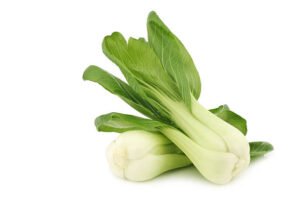 Rich in Antioxidants
Rich in Antioxidants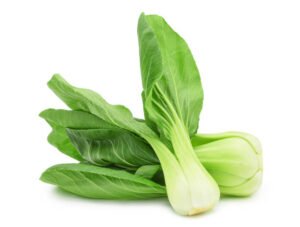 Supports Bone Health
Supports Bone Health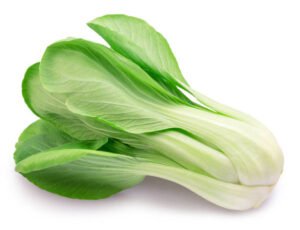 Boosts Immune System
Boosts Immune System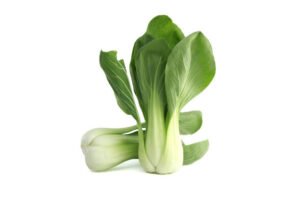 Promotes Heart Health
Promotes Heart Health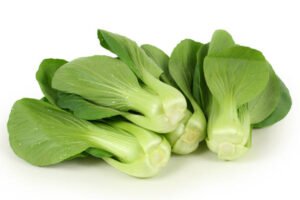 Aids in Digestion
Aids in Digestion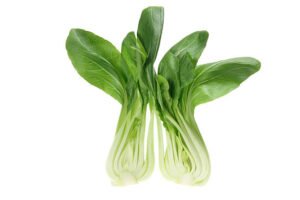 May Reduce Cancer Risk
May Reduce Cancer Risk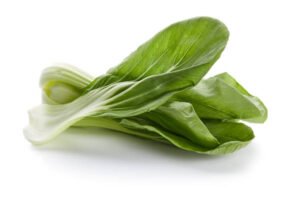 Enhances Skin Health
Enhances Skin Health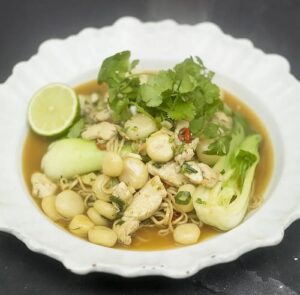 Recipe
Recipe